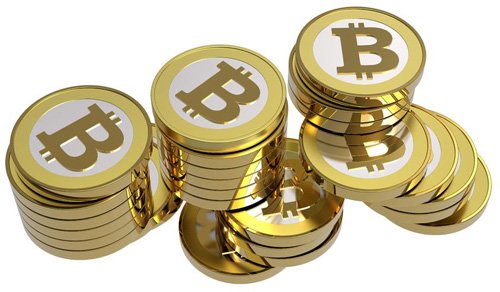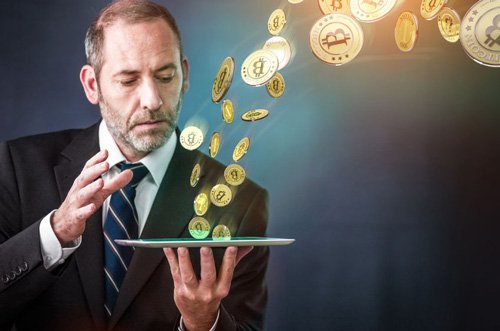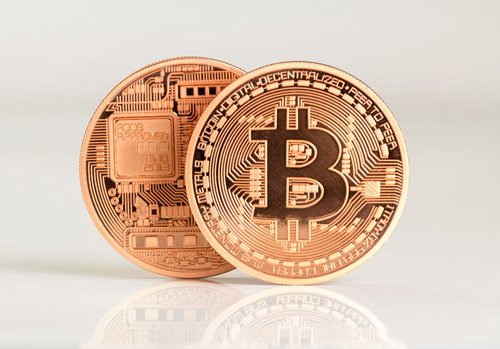Reading Comprehension Text and Exercises
Bitcoin
The Currency of the Future
Bitcoin is an alternative type of payment system. It is a type of internet or digital money. You can use it to do business outside mainstream financial services. Bitcoin is basically digital cash. It works just like an online wallet. You can send money in your online wallet to your friends, buy stuff online and offline, or even invest in it, like you would do with stocks.

Click Here for Step-by-Step Rules, Stories and Exercises to Practice All English Tenses
A Brief History of Bitcoin
- Bitcoin is not an entirely new idea. Before Bitcoin, there were a few digital cash technologies available, but most of them needed more time to fully develop.
- In 2008, a paper about a peer-to-peer cash system, authored by Satoshi Nakamoto, was posted to a specialized mailing list. Some months later, in January 2009, the Bitcoin software was released.
- The very first supporters, who downloaded the software on the first day, received several bitcoins from the creator for free.
- In the first eight years of the operation, it is estimated that some 16.5 million Bitcoins were bought.
- As an example, in 2017 the bitcoin hit a record high of 1 bitcoin = over $10,000 US dollars. (When it just started trading in 2010 it was 1 bitcoin = less than $0.5 US dollars!)
Bitcoin in a Nutshell
Bitcoin was created as a response to the criticism suggesting that big banks are corrupt and not accountable, constantly misusing clients' money and charging enormous fees.
The creator of Bitcoin invented something that eliminates the middleman – or, in this case, the bank - from financial exchanges. Because the Bitcoin system is decentralized, all transactions are very transparent, so there is no corruption. The clients always know what is going on and can control their own money.
In brief, it is a virtual currency, and the users are free to choose among checks, wiring or cash when they want to make a transaction.

How Does Bitcoin Work?
A word often associated with Bitcoin is "blockchain", which is where all confirmed transactions Bitcoin users make are placed as "blocks". More specifically, whenever a "block", or a transaction, enters the online system, its validation is needed on the peer-to-peer computer network. That means that all Bitcoin users are aware of every single block, and this makes stealing or spending the same currency twice impossible.
This is one of the reasons why millions of people trust Bitcoin and see a very bright future ahead of it. All transactions occur only between the buyer and the seller, with the help of private "keys", or passwords, they come up with, and their electronic gadgets.
Where Is Bitcoin Used?
Even though it is only several years old, Bitcoin has permeated to businesses and households around the world. Even billion-dollar businesses like PayPal and Microsoft allow their customers to use Bitcoin to pay for services. It is also possible to buy a necklace or a ring from the REED Jewelers jewelry chain in the United States using Bitcoin.
In addition, people in living in the countries with high levels of corruption find Bitcoin to be the easiest and most reliable channel for sending and receiving money.

How Can Bitcoin Be Bought?
At first, all new users must install a virtual wallet onto their electronic devices. This wallet is like an online bank account where all future transactions will be noted.
Next step, Bitcoin needs some real money which will be translated into a virtual currency. This can be done through an online payment, a bank transfer or a third-party website. Once the funds are stored in the virtual wallet, the users should order bitcoins and then use them as they please. This simple process is very similar to trading stocks, for example.
Interesting Facts about Bitcoin
- Rick Falkvinge, the Founder of the Swedish Pirate Party, said that "Bitcoin will do to banks what email did to the postal industry", meaning that banks will lose most of their business thanks to this new development.
- While Satoshi Nakamato is listed as the creator of Bitcoin, it is unknown whether this is a person or a group of people. The founder(s) claim to be Japanese; however, this is also not certain.
- If you lose your virtual wallet, you will lose your Bitcoins forever. It was reported that one Bitcoiner (a Bitcoin user) accidentally threw away his hard drive, losing 7,500 Bitcoins amounting to £4 million.
- Unlike in the offline world, refunds are not possible for Bitcoin transactions. One user learned this the hard way by accidentally sending $137,000 instead of $5 to a seller.
Comprehension Exercises
Vocabulary Questions
- What does "corruption" mean?
- collaborating for a good cause
- bad behavior, usually involving taking money illegally
- disrupting an event
- What does "transparent" mean?
- shared by several entities
- shinning very brightly
- easy to detect or see through
- What does "permeate" mean?
- spread throughout
- allow something to happen
- repeat something
- What does "refund" mean?
- pay back
- increase someone's salary
- pay in installments
- What does "accountable" mean?
- possible to count
- related to a bank account
- responsible for own actions
Collocation Questions
- The first paper about Bitcoin was posted to the cryptography mailing ___________.
- list
- index
- catalogue
- Bitcoin is designed as a ___________ of exchange.
- channel
- medium
- tool
- The REED Jewelers is a jewelry ___________.
- set
- series
- chain
- It is essential to use electronic ___________ in the Bitcoin system.
- gadgets
- utensils
- instruments
- Bitcoin ___________ the third person from all exchanges.
- banishes
- puts an end to
- eliminates
- One user learned it the ___________ way by making a huge mistake.
- A. tough
- B. hard
- C. forceful
- Bitcoin transactions are almost like ___________ stocks.
- switching
- trading
- swapping
- Big banks were accused ___________ misusing clients' money.
- of
- for
- about
- Bitcoin is the first ___________ cryptocurrency.
- scattered
- segregated
- decentralized
- Cryptocurrencies can verify the ___________ of assets.
- transport
- resettlement
- transfer
Wh Questions
- What inspired the creation of Bitcoin?
- corrupt politicians
- corruption in Microsoft
- corrupt banks
- Where can you find your Bitcoins if you lose your virtual wallet?
- nowhere
- in the Lost and Found section
- online
- Why does Rick Falkvinge think Bitcoin will seriously damage banks?
- because it will hack the bank software
- because it will make them obsolete C. because all bankers will want to work for Bitcoin
- Where is the virtual wallet located?
- in the user's pocket
- in the user's safe C. on the user's phone, tablet or laptop
- How is stealing money prevented in the Bitcoin system?
- all users can see all transactions
- there are numerous passwords C. there is video surveillance
Evaluating Statements
- Based on the information in this lesson, which statement is true?
- If you buy something with Bitcoin and you don't like it, you can return it and get your money back.
- Once you have purchased something with Bitcoin, you can't get your money back.
- Based on the information in this lesson, which statement is false?
- Only small business trust Bitcoin.
- Big business also trust Bitcoin.
True or False?
- Based on the information in this lesson, is the following statement true or false?
"You need to have real money before you can purchase Bitcoins." - True
- False
- Based on the information in this lesson, is the following statement true or false?
"We know for a fact that the Bitcoin creator is Japanese." - True
- False
Answer Key
1. B | 2. C | 3. A | 4. A | 5. C | 6. A | 7. B | 8. C | 9. A | 10. C | 11. B | 12. B | 13. A | 14. C | 15. C | 16. C | 17. A | 18. B | 19. C | 20. A |21. A | 22. A | 23. A | 24. B
Get Updates, Special Offers, and English Resources
Download your FREE GIFT (the first two chapters of
English Short Stories Book and Workbook)
as soon as you join!

By submitting your email, you consent to receiving updates and newsletters from us and to the sharing of your personal data with third parties for the purposes of sending you communications. We will not spam you. You can unsubscribe at any time. For more information, please see our privacy policy.





